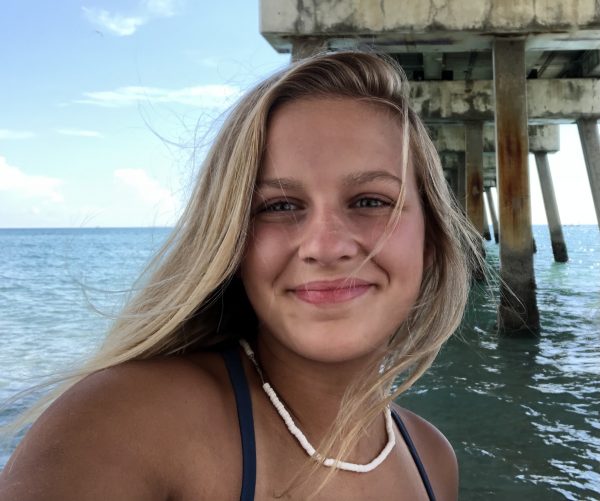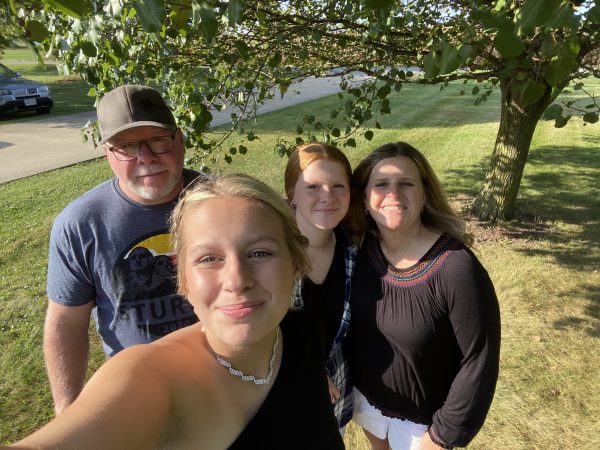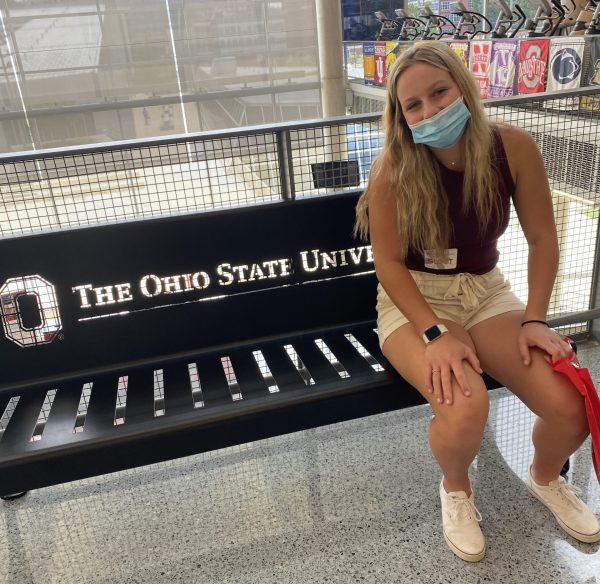
In support of the 100th anniversary of insulin, we wanted to take a look at its impact through the eyes of one of our patients. Delaney Lawson was 10 when she was diagnosed with type 1 diabetes. Learning to manage and cope with her condition has been challenging but Delaney, now nearly 18 and a senior at Highland High School, doesn’t let it keep her from staying busy with sports, academics and time with family and friends.
We caught up with Delaney to see how she’s doing and how medicine and a care team at Akron Children’s help her manage it all.
You were diagnosed with type 1 diabetes in 2014, how is your health today?
My health is better despite also being diagnosed with celiac disease and then thyroid disease a few years ago. I’m able to manage my conditions with medication, diet and patience. Over the past few years, I have put more focus on taking care of myself. I exercise more to keep my blood sugar levels in range and I also pay attention to how I eat since I’ve learned a lot about how different foods affect our bodies.

Delaney is very active in sports and school. Her insulin pump helps her manage her blood sugar levels so she can focus on being a kid.
What’s been the most challenging part of living with diabetes?
The two biggest challenges have been coming to terms with the diagnosis and dealing with the anxiety it causes. When I was younger, I couldn’t understand why I had to be the one with diabetes. I felt like the world was against me or that I did something to deserve it. My nurse practitioner, Lisa Davis, and my family have helped me come to terms with the disease and I am really grateful. My biggest challenge now is dealing with the anxiety that stems from diabetes. I know how important insulin is for regulating my blood sugar levels so I have a constant fear of forgetting my insulin pump. I also worry a lot about low blood sugar, especially when my dexcom (continuous glucose monitoring system) isn’t working since I use it all of the time.

Delaney is team captain of the varsity girls basketball team at Highland High School.
How has Akron Children’s helped you manage the disease and these challenges?
For 7 years, I’ve been seeing Lisa Davis and she has taught me a lot about diabetes and how to ease the anxiety it causes. She always makes sure I understand how certain changes in medicine, diet and exercise may affect me. I’m a pretty determined person but there have been a lot of appointments where my A1C (blood sugar) wasn’t where I wanted it to be and it made me feel like I was doing something wrong. Lisa has always been reassuring and talks with me for as long as it takes to make sure I celebrate what went right and that we have a plan for next time. I look forward to every appointment because I love and appreciate my entire endocrinology care team.

Part of Delaney’s support team has always been her family (not pictured Titus, the family dog).
What’s the biggest misconception people have about you/your diabetes?
I think it’s that I got diabetes because I was unhealthy. A lot of people my age don’t realize there are two types of diabetes and they assume it’s my fault that I’m diabetic.
While diabetes doesn’t limit the things I do, it definitely makes things harder sometimes. Basketball is probably my biggest struggle because I love playing, but it’s so hard to control my blood sugar during the season. Trying to find a good balance between carbs and medicine before games is something that’s been really hard for me. I’ve been working with Lisa and my dietician (Danielle) to find the right balance because I can feel the difference in my legs and energy level when things are off.

After high school, Delaney plans to attend college (hopefully The Ohio State University) and go on to medical school to become a pediatric sports medicine physician or endocrinologist.
How often do you come to Akron Children’s for appointments now?
I’m at the hospital once every 3 months for endocrinology and once a year for gastroenterology and a vision check-up. During the beginning of the pandemic, I was able stay on track with my health using telehealth appointments, which I felt lucky to have as a resource.
Although I’m too old to attend now, I loved going to the Akron Children’s Diabetes Camp each summer when I was younger. The camp was really important to me because everyone there was just like me and it made me feel so normal. It made a huge difference in how I felt about my condition, and I met some really great friends there. I look forward to applying to be a counselor at the camp when it starts back up again.

Delaney was an Akron Children’s Hero at the Akron Marathon in 2016. She says of the experience, “It made me feel really appreciated. My Akron Children’s care team of Lisa Davis, Chip Vitagliano and Danielle Dimengo all came to my Hero Zone to support me… It was a great experience and I was honored to be a part of it.”
Delany’s provider, Lisa Davis, MSN, APRN, CPNP, says diabetes patients (and their families) make over 100 decisions a day related to managing the condition.
“The advancements in insulin have really helped give our patients more freedom to be a kid because they don’t have to worry as much about staying on regimented routine of checking blood sugar levels,” said Davis. “The disease is hard for a child to understand and can bring worry so our team works really hard to explain the role of insulin while giving them encouragement, knowledge and rewards to show them they can and will thrive with this condition…Delaney is a shining example of how when everyone has the same goal, great things happen.”
For more information on how to help your child manage diabetes, contact the Center for Diabetes and Endocrinology at 330-543-3276.








